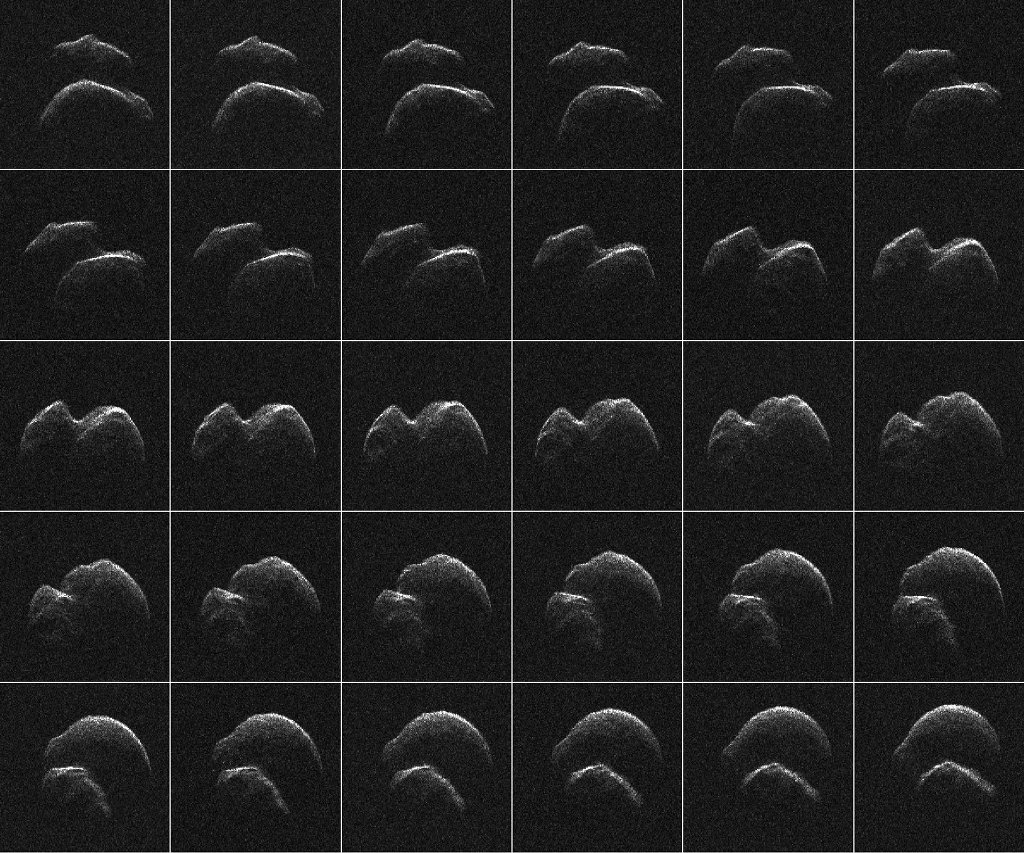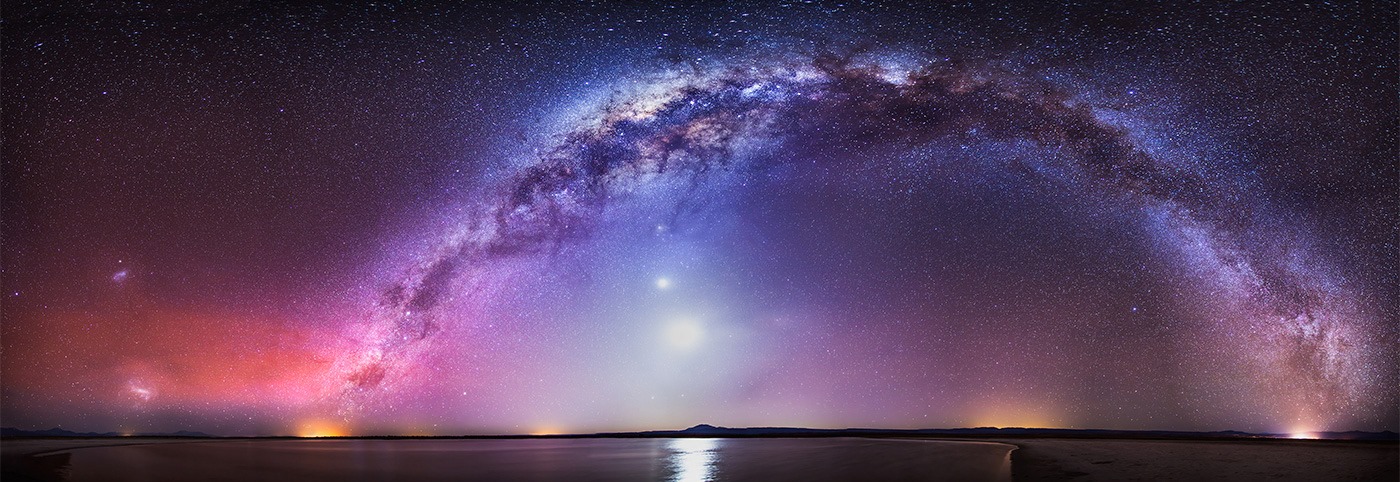
A day before its closest approach, asteroid 2014 JO25 was imaged by radar with the 70-meter antenna of NASA’s Goldstone Deep Space Communications Complex in California. This grid of 30 radar images, top left to lower right, reveals the two-lobed shape of the asteroid that rotates about once every five hours. Its largest lobe is about 610 meters across. On the list of Potentially Hazardous Asteroids, this space rock made its close approach to our fair planet on April 19, flying safely past at a distance of 1.8 million kilometers. That’s over four times the distance from the Earth to the Moon. The asteroid was a faint and fast moving speck visible in backyard telescopes. Asteroid 2014 JO25 was discovered in May 2014 by the Catalina Sky Survey, a project of NASA’s Near-Earth Objects Observations Program in collaboration with the University of Arizona. via NASA
